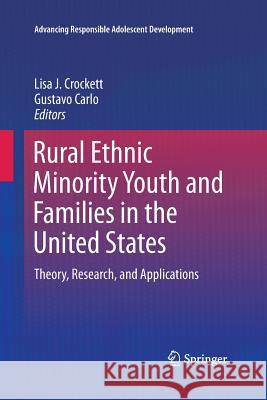Rural Ethnic Minority Youth and Families in the United States: Theory, Research, and Applications » książka
topmenu
Rural Ethnic Minority Youth and Families in the United States: Theory, Research, and Applications
ISBN-13: 9783319371511 / Angielski / Miękka / 2016 / 297 str.
Kategorie:
Kategorie BISAC:
Wydawca:
Springer
Seria wydawnicza:
Język:
Angielski
ISBN-13:
9783319371511
Rok wydania:
2016
Wydanie:
Softcover Repri
Ilość stron:
297
Waga:
0.44 kg
Wymiary:
23.39 x 15.6 x 1.68
Oprawa:
Miękka
Wolumenów:
01
Dodatkowe informacje:
Wydanie ilustrowane











